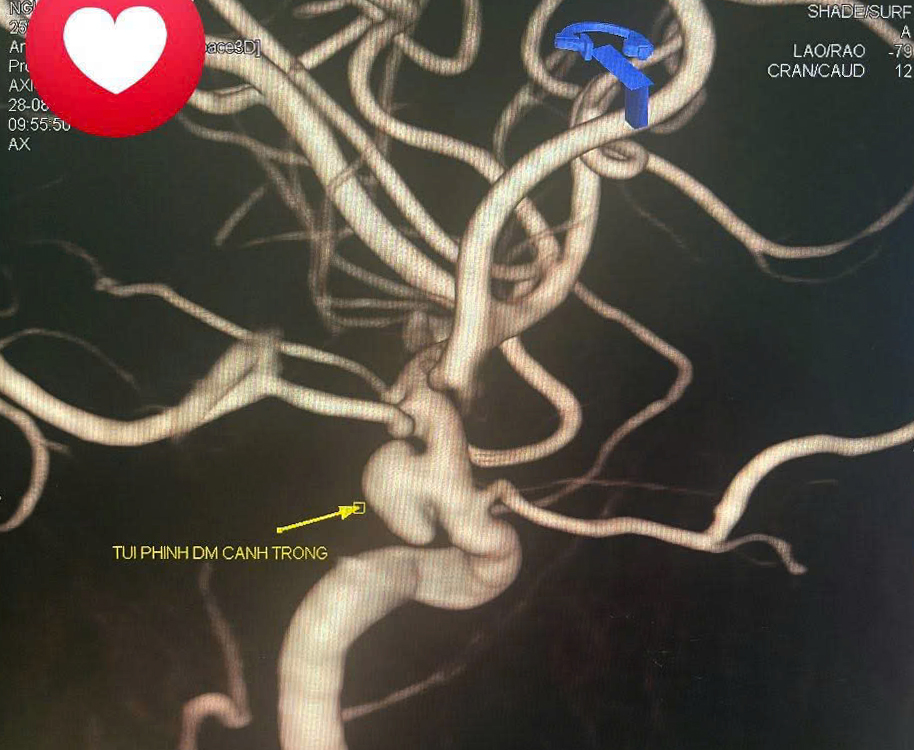On 1/9, representatives from Quang Ninh General Hospital reported a large aneurysm in the woman's left internal carotid artery. While there was no surrounding blood clot, the aneurysm posed a significant risk of rupturing at any time, potentially leading to a hemorrhagic stroke and endangering her life. The medical team employed a coiling procedure, using metal coils in conjunction with a stent to block the aneurysm's neck.
Doctor Ngo Quang Chuc, Head of the Diagnostic Imaging Department, described the case as complex due to the aneurysm's wide neck. This made coiling challenging, increasing the risk of coils drifting into the bloodstream and causing cerebral embolism.
The stent acted as a support at the aneurysm's neck, helping restore blood flow through the affected artery and mitigating potential risks. The procedure required absolute precision, from selecting the appropriate stent and coil sizes to match the brain's blood vessels to skillfully maneuvering micro-catheters through the intricate network of narrow and winding blood vessels. Given the patient's young age, the treatment goal was not only to eliminate the immediate risk of rupture but also to ensure long-term effectiveness and minimize complications.
The patient remained conscious throughout the procedure and recovered quickly. She experienced no pain and was able to walk and eat normally a day after the intervention.
 |
Image of the carotid artery aneurysm. Photo: Hospital provided |
Image of the carotid artery aneurysm. Photo: Hospital provided
Undetected brain aneurysms are often described as "ticking time bombs." Regular screening is the only way to detect and address them before rupture. Doctors recommend regular health checkups to identify risk factors early. People should be aware of common symptoms like headaches, dizziness, hand tremors, and temporary blurred vision, which could be signs of this "silent killer."
High-risk individuals should consult with specialists for advice and regular brain screenings. If warning signs like sudden severe headaches, stiff neck, or altered consciousness appear, immediate medical attention is crucial. Managing blood pressure, quitting smoking, and limiting alcohol consumption are important measures to reduce the risk of arterial damage.
Thuy Quynh












